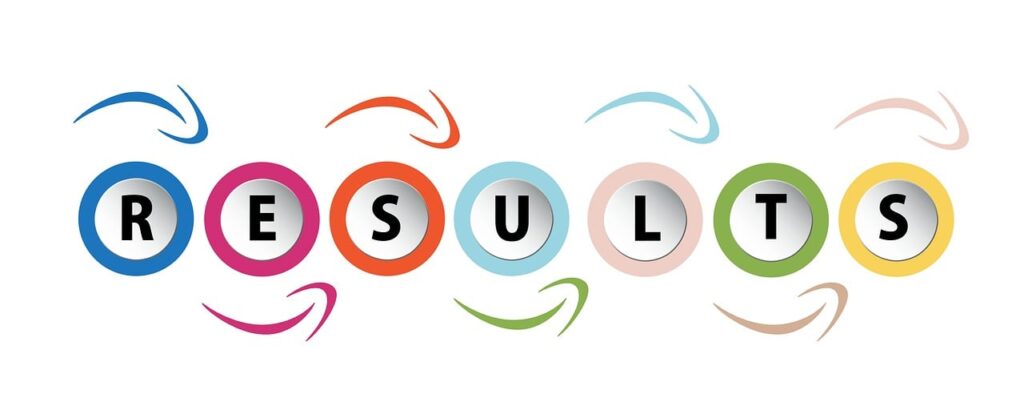Navigating the world as a freelancer comes with its own unique set of challenges and rewards. Among these is striking the ideal balance between professional obligations and personal life. This article, ’10 Expert Tips for Balancing Work and Life as a Freelancer’, shares invaluable insights from seasoned freelancers to help you establish a harmonious blend of work and life. Their knowledge will serve as your compass, guiding you in managing your time, setting boundaries, and maintaining your well-being while thriving in your chosen field.
Understanding What Work-Life Balance Means For You
Work-life balance is an essential concept that promotes health, happiness, and productivity. The term refers to the equilibrium that a person needs between time dedicated to work and other aspects of life. These other aspects could include recreation, family time, social activities, and self-care. Understanding your personal work-life balance means recognizing your unique needs and wants both professionally and personally.
Defining Ideal Work-Life Balance
The ideal work-life balance differs from person to person. It’s a personal assessment of how your work commitments integrate and blend with your life responsibilities and pleasures. For some, an ideal work-life balance might mean the equal distribution of hours between work and personal life. For others, it could involve flexible work hours or the ability to work from home. The key is to define what work-life balance means to you, personally.
Evaluating Your Current Situation
Before you can aim for your ideal work-life balance, you should evaluate your current situation. This involves taking a close look at how much time you allocate to work and other life activities. Ask yourself: Do you truly have a balance, or does work overly dominate your time? Are there parts of your life you feel are being neglected because of work? Evaluating your current situation helps you identify what aspects need improvement.
Setting Personal and Professional Goals
Goal-setting is integral to achieving your ideal work-life balance. Clear goals provide a roadmap and make it easier to manage your time effectively. Create both professional and personal goals based on what you want to achieve. Your professional goals can be career-oriented, while your personal goals can involve health, relationships, or personal growth.
Creating A Structured Routine
Routine brings structure and predictability to your day, providing a framework upon which you can build a balanced life.
Significance of Planning Your Day
A daily plan reduces stress and helps you manage time more efficiently. It enables you to dedicate adequate time for work, rest, personal activities, and other life responsibilities. By planning your day, you better estimate the time required for tasks, minimizing the chance of work spilling over into personal time.
How to Create a Time-Sensitive Task List
A time-sensitive task list forms the basis of your daily plan. Start by listing all the tasks you need to complete in a day. Then, estimate the time required for each and schedule them accordingly. Remember to make the list realistic and achievable to avoid unnecessary stress or disappointment.
Importance of Regular Breaks
Regular breaks within your workday are crucial. They help reduce fatigue and increase productivity. Plan short 5 to 15 minute breaks every hour to refresh your mind. It can help improve mental agility, keeping your mind sharp and focused.
Learning To Prioritize Tasks
Only a limited number of tasks can be accomplished in a day, so prioritizing is essential.
Understanding What Tasks Are Most Important
Not all tasks are equally important. Some have higher priority due to deadlines or their strategic importance in your work. Understanding which tasks are most important allows you to focus on them first during your workday.
How to Prioritize Your Time
Once you identify critical tasks, allocate your time wisely. You can use techniques such as the Eisenhower Box, which classifies tasks into ‘urgent’, ‘important’, ‘not urgent’, and ‘not important’, to help prioritize.
Managing Job Expectations
Effective work-life balance involves being able to manage job expectations. This includes setting realistic expectations with yourself and your clients or employer about what you can deliver and when.

Managing Time Effectively
Time management skills are critical, as they help ensure that your work and personal life thrive simultaneously.
Implementing time management tools
Time management tools can help you structure your work day more effectively. These tools can range from simple to-do lists to digital calendars or professional time-management software.
Creating a work schedule that aligns with your lifestyle
Your work schedule should not clash with your personal time. Design a schedule that fits best with your lifestyle and personal commitments to avoid conflict and stress.
Avoiding procrastination
Procrastination can be a major deterrent in managing time effectively and maintaining work-life balance. Use techniques like the Pomodoro method or time-blocking to combat procrastination.
Setting Boundaries With Clients
Setting clear boundaries with clients is vital for maintaining a healthy work-life balance.
Communicating your schedule to clients
Transparent communication about your schedule allows clients to understand when you are available for work-related discussions. This reduces the chance of your personal time being disturbed.
Defining your availability
Clearly defining your work hours, and communicating them with clients, helps in setting a boundary that clients should respect. Remember, it’s crucial that you respect those boundaries too.
Handling demanding clients
Demands from clients may occasionally spill over your defined boundaries. Balancing firmness and polite communication can help you manage such instances and remain in control of your time.
Leveraging Technology For Efficiency
Technology can greatly assist in achieving work-life balance particularly through boosting productivity and efficiency.
Using productivity apps
Many apps can streamline your tasks and save time. Ranging from team communication apps to project management apps, these tools can help deliver optimum productivity by simplifying your tasks.
Utilizing project management tools
Project management tools provide a centralized place for all your work documents, communication, and deadlines. This helps save time and keeps you organized.
Opting for a virtual assistant
Virtual assistants can manage mundane tasks like scheduling and email management, freeing up time for more critical work-related or personal tasks.
Taking Care of Your Health
Your health plays a crucial role in maintaining a good work-life balance.
Importance of Physical Health
Physical health supports your overall well-being and work efficiency. Regular exercise, a balanced diet, and adequate sleep have been proven to enhance productivity.
Maintaining Mental Well-being
Balanced mental health correlates directly with productivity and work-life balance. Techniques such as mindfulness and stress management can help keep you balanced and content.
Incorporation of Regular Exercise
Regular exercise not only boosts your physical health but is also proven to reduce stress, improve mood, and enhance productivity. Choose an exercise regime you enjoy to make it a highlight of your routine.
Nurturing Relationships Outside Work
Maintaining a balance in life also includes nurturing relationships and participating in social activities.
Making time for Relationships
Whether it’s family, friends or a partner, maintaining and nurturing relationships is crucial for holistic well-being.
Maintaining Social Activities
Participating in social activities helps to relax and provides an outlet for stress. It also enhances your sense of belonging and happiness.
Disconnecting from Work
Time away from work allows you to rest and rejuvenate. Disconnecting can involve not checking emails during non-work hours, shifting your focus to non-work-related activities, or simply enjoying quiet time alone.
Investing In Self-Care
Self-care is an essential component of work-life balance and general well-being.
Understanding the importance of downtime
Downtime is important to recharge your mind and body. It helps you manage stress and leads to better productivity.
Creating a self-care routine
A self-care routine might include activities like reading, gardening, meditating or taking a long bath. These activities help rejuvenate your mind and body, preparing you for a fresh workday.
Investing in hobbies and relaxation
Spending time on hobbies and relaxation can provide a sense of satisfaction and happiness. Regularly investing in such activities will help maintain a fulfilled life beyond work.
Seeking Support When Required
Support is crucial in maintaining work-life balance, making it essential to recognize when to seek help.
Identifying When to Seek Support
Struggles in maintaining work-life balance can sometimes overwhelm you. It is crucial to recognize when you need support and seek it without hesitation.
Leveraging Freelancer Communities
Freelancer communities can provide advice, respond to queries, and offer valuable experiences. Engaging in these communities can provide valuable insights to improve your work-life balance.
Seeking Professional Help
Professional help, like career coaches or counselors, can provide expert guidance in managing work-life balance effectively. They can help you evaluate your current situation objectively and provide constructive techniques to maintain balance.
Remember, the quest for work-life balance is not about a perfect split between work and life. Instead, it’s about finding an equilibrium that allows you to thrive both personally and professionally. It’s a personal journey that requires continuous assessment and adjustments.




